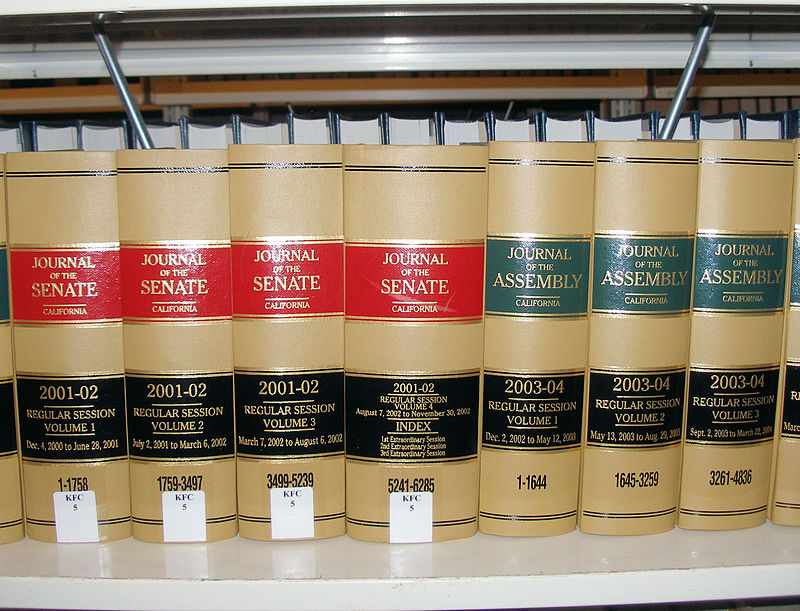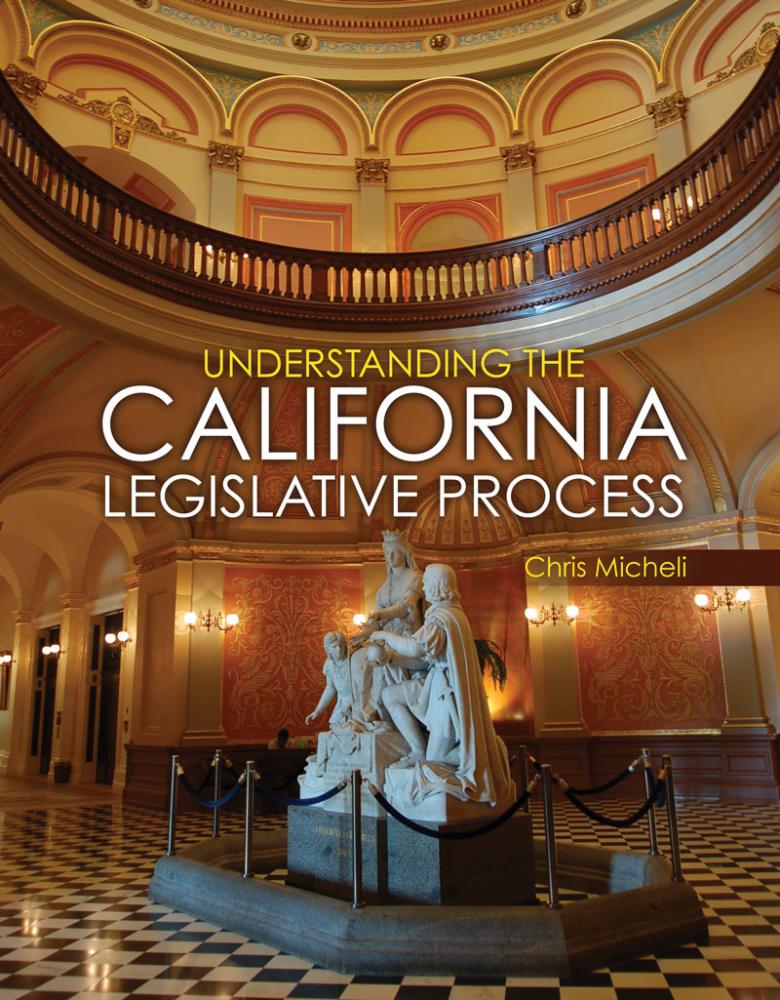
Journals of the California Legislature. (Photo: Wikipedia)
Drafting California’s Memorandum of Understanding Bills
The State of California is required to negotiate a memorandum of understanding for all of its employee bargaining units
By Chris Micheli, April 6, 2022 6:31 am
The State of California is required to negotiate a memorandum of understanding for all of its employee bargaining units. This area of law is set forth in Government Code Title 1, Division 4, Chapter 10.3, which is titled “State Employer-Employee Relations,” and covers Sections 3512 – 3524.
Government Code Section 3517 requires the Governor, or his representative as may be properly designated by law, to meet and confer in good faith regarding wages, hours, and other terms and conditions of employment with representatives of recognized employee organizations, and to consider fully presentations as are made by the employee organization on behalf of its members prior to arriving at a determination of policy or course of action. The phrase “meet and confer in good faith” is defined.
Section 3517.5 requires, if an agreement is reached, the Governor and the recognized employee organization to jointly prepare a written memorandum of understanding (MOU) which must be presented, when appropriate, to the Legislature for determination. As a result of this code section, the Legislature approves each MOU after it has negotiated by the executive branch.
Also of interest is Section 3517.63 which provides that any side letter, appendix, or other addendum to a properly ratified memorandum of understanding that requires the expenditure of $250,000 or more related to salary and benefits and that is not already contained in the original memorandum of understanding or the Budget Act is required to be provided by the Department of Human Resources to the Joint Legislative Budget Committee.
Thereafter, the Joint Legislative Budget Committee is required to determine within 30 days after receiving the side letter, appendix, or other addendum if it presents substantial additions that are not reasonably within the parameters of the original memorandum of understanding and thereby requires legislative action to ratify the side letter, appendix, or other addendum.
In addition, a side letter, appendix, or other addendum to a properly ratified memorandum of understanding that does not require the expenditure of funds is required to be expressly identified by the Department of Human Resources if that side letter, appendix, or other addendum is to be incorporated in a subsequent memorandum of understanding submitted to the Legislature for approval.
Finally, there is Section 3517.7 which specifies that, if the Legislature does not approve or fully fund any provision of the memorandum of understanding which requires the expenditure of funds, either party may reopen negotiations on all or part of the memorandum of understanding. And, the parties are not prevented from agreeing and effecting those provisions of the memorandum of understanding which have received legislative approval or those provisions which do not require legislative action.
The Senate Rules also contain Rule 29.4, concerning “Bills Approving Memoranda of Understanding.” SR 29.4 provides as follows:
The Senate may not pass a bill that approves a memorandum of understanding, for purposes of Section 3517.5 and following of the Government Code, until the final version of the subject memorandum of understanding is received by the Secretary of the Senate and made available for review for seven legislative days and its availability for review noted in the Senate Daily Journal for that period.
In terms of the bill language for the Legislature to adopt these MOUs, the following are examples of some of the language that will appear in a bill:
The Legislature finds and declares that the purpose of this act is to approve and make the conforming statutory changes for the agreement entered into by the state employer and State Bargaining Unit ___ pursuant to Section 3517.5 of the Government Code.
Notwithstanding Section 19829.5 of the Government Code, the provisions of the addendum prepared pursuant to Section 3517.5 of the Government Code and entered into by the state employer and State Bargaining Unit ___, dated ___, and that require the expenditure of funds, is hereby approved for purposes of Section 3517.63 of the Government Code.
The provisions of the addendum included in Section ___ of this act that require the expenditure of funds shall not take effect unless funds for these provisions are specifically appropriated by the Legislature. If funds for these provisions are not specifically appropriated by the Legislature, either the state employer or State Bargaining Unit ___ may reopen negotiations on all or part of the addendum.
Notwithstanding Section 3517.63 of the Government Code, the provisions of the addendum included in Section ___ of this act that require the expenditure of funds shall become effective even if the provisions of the addendum are approved by the Legislature in legislation other than the annual Budget Act.
The sum of $___ is hereby appropriated for State Bargaining Unit ___ for expenditure in the ___ fiscal year in augmentation of, and for the purpose of, state employee compensation, as provided in Item ___ of Section ___ of the Budget Act of ___.
The MOU bill will also amend one more sections of the Government Code that specifically reference different MOUs with state bargaining units. Thereafter, the bill is put before both houses of the Legislature for a vote.
- Probate Code Could Be a Basis for Statutory Interpretation Principles - February 22, 2026
- Conservation Banks - February 22, 2026
- Mergers of Unincorporated Associations - February 21, 2026




